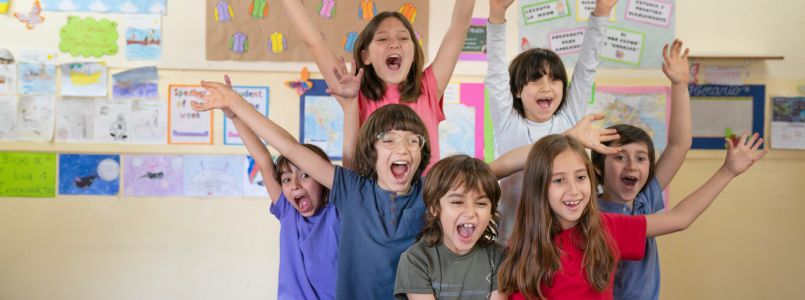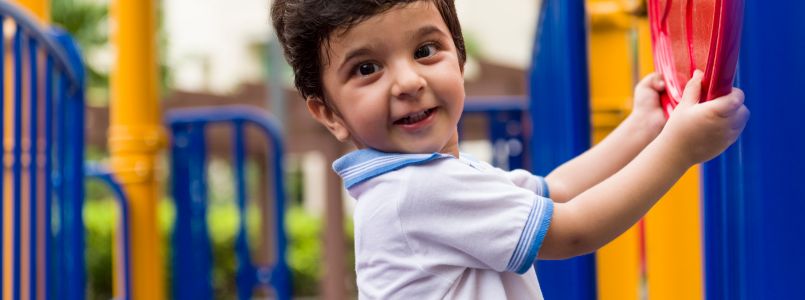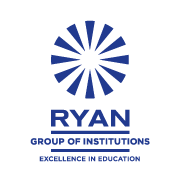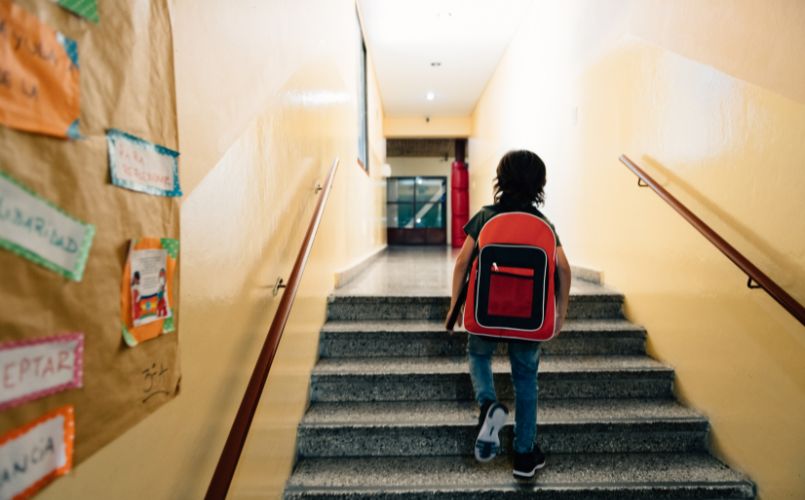For parents the journey ahead involves more than choosing the school; it also entails preparing their little ones for this new chapter. School readiness goes beyond academics; it means adapting to a routine interacting with peers and embracing a sense of independence. Its about gradually introducing them to the idea that learning can happen in settings beyond classrooms.
Dr. Sunita Gandhis emphasizes the role of parents in education. She suggests that
parents are the teachers and their home is the classroom.
This perspective reveals opportunities, for learning at home and underscores that school preparation starts within our households.
By engaging in activities such, as reading stories playing educational games and having conversations about the world around them each interaction becomes an opportunity for growth.
At this stage the goal is not just preparing toddlers for school but also to nurture a sense of curiosity and joy in discovering things. By incorporating activities into routines parents can create a harmonious balance between learning and play. This approach not helps toddlers adapt to the environment of school but also instills a lifelong passion for learning.
The aim is to make learning a pursuit that motivates and inspires children. The foundation we establish today plays a role in shaping their attitudes towards education and learning in the years. Lets move forward together creating a range of experiences that will support our ones as they enter formal education.
Fostering Social Skills as a part of Preparing Toddlers for School

As we explore the intricacies of childhood development cultivating skills emerges as a fundamental aspect for childrens successful integration into school life. The ability to interact, communicate and collaborate with peers is not beneficial but essential, for the growth of young learners.
According to a study published in the “International Journal of Early Years Education ” there is a connection, between developed social skills in toddlers and their academic performance and overall well being in school.
Parents play a role in fostering these skills. By providing opportunities for their children to interact with peers they establish the foundation for interactions. Whether its organizing playdates, participating in community events or attending family gatherings each interaction contributes to the development of empathy, cooperation and communication abilities.
An interesting fact about childhood development is that toddlers who engage in cooperative play activities at an age often exhibit better social problem solving skills and are more successful at forming friendships in school. This underscores the significance of experiences in shaping a childs positive interactions with others.
One effective approach for parents to support their toddlers skills is through engaging in role playing activities. These activities not provide entertainment, Also teach valuable lessons, about sharing, understanding emotions and resolving conflicts and preparing toddlers for school . For example setting up a classroom” environment at home with stuffed animals or dolls as “classmates” can simulate a school setting.
Not does introducing children to the concept of school familiarize them with it. It also offers a controlled and comfortable environment for them to practice social interactions.
Furthermore encouraging children to express themselves and actively listen during conversations can greatly enhance their social confidence. Simple practices, like talking about their day sharing thoughts and feelings and engaging in storytelling can significantly contribute to their emotional development.
Developing skills is comparable to equipping children with a set of tools they’ll need throughout life. These skills empower them to connect with others understand perspectives and make contributions to their communities. As parents and educators our responsibility is to provide opportunities for engagement while guiding them as they navigate the complex social landscape both in school and beyond.
Playtime plays a role in a childs years that goes beyond mere entertainment; it acts as a key driver of cognitive development. Through play children have the chance to explore concepts solve problems and gain an understanding of the world around them. The American Academy of Pediatrics emphasizes play as an element in developing executive functioning skills such as memory retention, planning abilities and decision making skills.In particular interactive play serves as a catalyst, for growth.
Engaging in activities that spark curiosity and challenge their thinking young children start making connections and developing an understanding of concepts. Take building blocks for example. It may seem like an activity. It actually promotes spatial awareness, pattern recognition and problem solving abilities.
Renowned educational psychologist Jean Piaget once said that
Play is the work of childhood
which perfectly captures the significance of play. Through play kids learn how to interact with their surroundings tackle obstacles and apply thinking skills. It’s, within these experiences that fundamental skills in math, language and science start to take shape.
To promote development through playtime parents can introduce games involving counting, sorting and categorizing objects. These activities not. Also help build mathematical and organizational abilities. Likewise, engaging in story based play nurtures language development by encouraging children to expand their storytelling skills.
Here are a few examples of play based activities that support growth;
- Solving puzzles; Enhances problem solving. Cultivates patience.
- Role playing games; Stimulates imagination and fosters understanding.
- Engaging in crafts and art; Encourages creativity while developing motor skills.
In essence play is more, than a way to pass the time; it’s an educational tool that prepares toddlers for the academic challenges they will face ahead.
By integrating play, into routines parents can create an environment that fosters natural and enjoyable learning experiences.
As we delve further into strategies for while preparing toddlers for school it becomes evident that emotional readiness is just as vital as cognitive preparedness. Taking an approach to address these aspects sets a foundation for our childrens successful transition to formal education.
Expanding on the groundwork of cognitive development emotional preparedness emerges as another factor in getting toddlers ready for school. This facet of preparation focuses on nurturing resilience and independence empowering children to navigate the new and occasionally demanding school environment.
Emotional Preparedness
Preparing toddlers for school emotionally encompasses more than recognizing and expressing feelings; it involves managing emotions adapting to situations and cultivating empathy towards others. According to a study published in the “Early Childhood Education Journal,” children who possess an strong emotional foundation are better equipped to confront academic and social challenges in school.
One effective method for parents to establish this foundation is through open communication. Engaging in conversations about feelings acknowledging emotions and setting an example, with responses are essential practices.
For example when it comes to getting ready, for school one great idea is to read books that talk about starting school or making friends. This can open up conversations about feelings and worries giving children the chance to express themselves and learn how to handle situations.
Encouraging children to develop self help skills is also really important for readiness. Things like letting them dress themselves pack their school bag. Choose their outfit can boost their confidence and sense of responsibility. These skills are crucial in helping kids feel more in control and less anxious about the changes they’ll experience.
Here are some tips for nurturing readiness while Preparing Toddlers for School
- Stick to a routine; Establishing a daily routine that mirrors the school schedule can help reduce anxiety related to the unknown.
- Teach emotion labeling; Show children how to identify and label their emotions, which improves their understanding of emotions and communication skills.
- Foster problem solving skills; Guide children through solving problems, which helps them build resilience and critical thinking abilities.
By giving importance to development alongside cognitive and social skills parents can ensure that their child is not just academically prepared but also emotionally equipped to handle both challenges and opportunities that come with school life.
Tailoring these strategies to suit your childs needs will enhance the school journey creating a positive and empowering experience, for both of you while preparing toddlers for school.
Transitioning to School; Advice for Parents

The transition to school is a milestone not for children but also for parents. This period of change can be approached with strategies that minimize anxiety while fostering excitement and positivity towards learning and new experiences.
- Explore the School Together; Prior to the start of the year seize the opportunity to visit the school with your child. Allow them to become familiar, with the surroundings, their classroom and perhaps even meet their teacher. This can help alleviate fears of uncertainty.
- Establish a Morning Routine; Having a consistent morning routine can reduce rush and stress. Practice this routine a weeks before school starts by waking up at the time each day getting dressed and having breakfast together.
- Embrace the predictability that comes with establishing routines and rituals. It can bring a sense of comfort and confidence.
- Say goodbye in a way to make parting easier, for your child. Whether its a hug, five or using a phrase having a consistent ritual can provide reassurance.
- Continue encouraging your child to develop self help skills that promote independence, such as packing their school bag tying their shoes or organizing their lunch. This not boosts their confidence. Also helps them adapt to the responsibilities of school life.
- Maintain an encouraging attitude towards school and learning as it greatly influences how your child perceives these experiences. Share positive stories about school emphasizing the opportunities to make friends and learn new things.
- Keep communication by talking with your child about their day and how they feel about school. Listening attentively to their experiences and concerns shows support. Validates their feelings.
- Gradually introduce periods of separation if possible; start with durations from each other and gradually increase them over time. This gradual approach helps your child become more comfortable being away, from home and adapting to environments.
By following these suggestions parents can play a part in preparing toddlers for school, making sure that their childs transition, to school goes smoothly and positively. It’s essential to keep in mind that each childs experience is different so being patient, understanding and supportive is vital as they embark on this phase of their lives.




